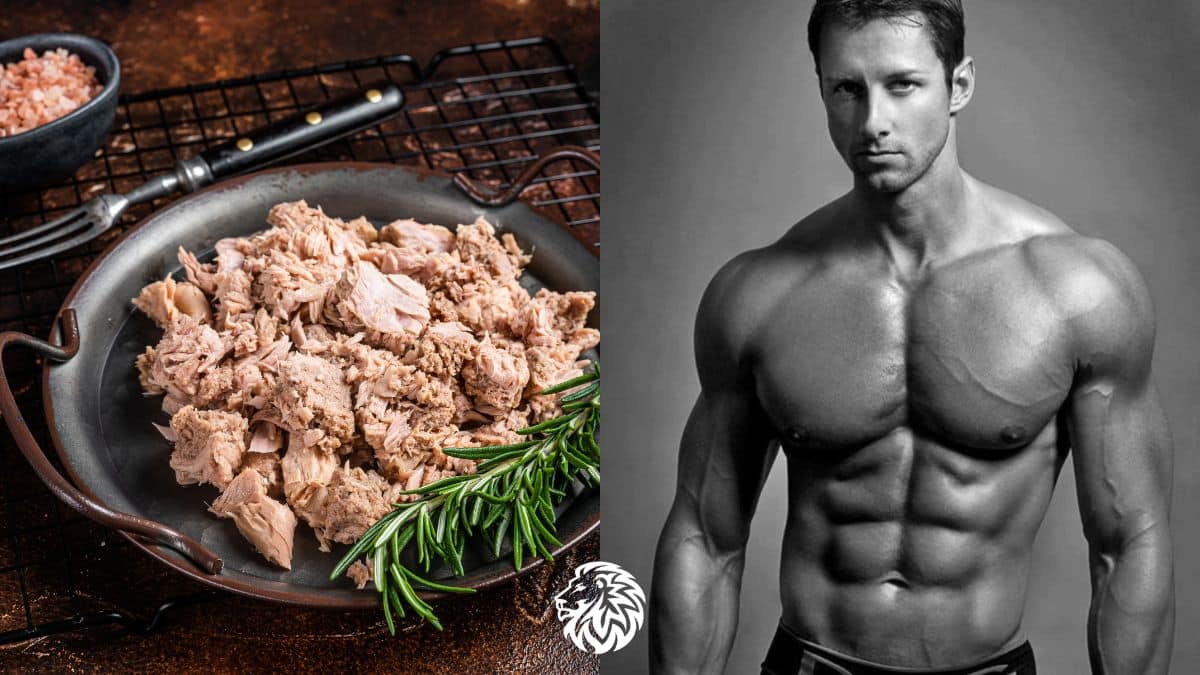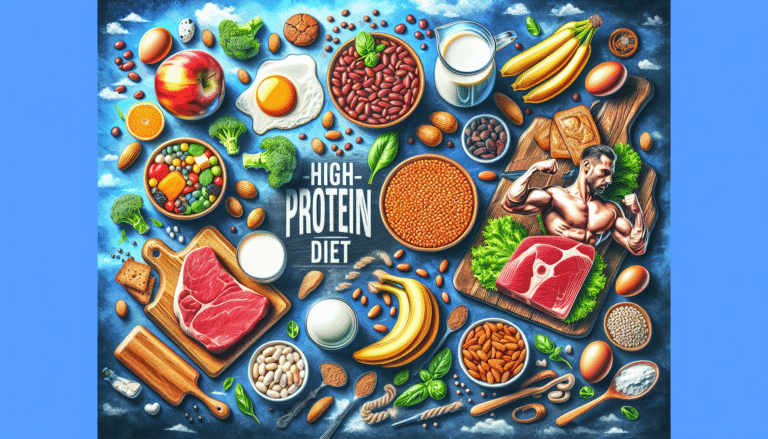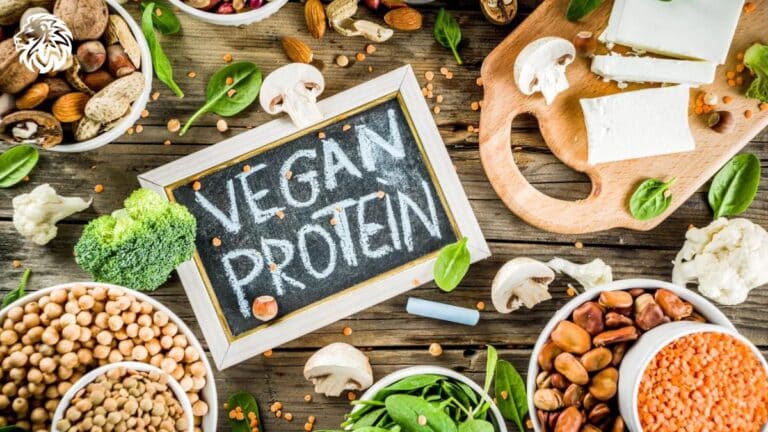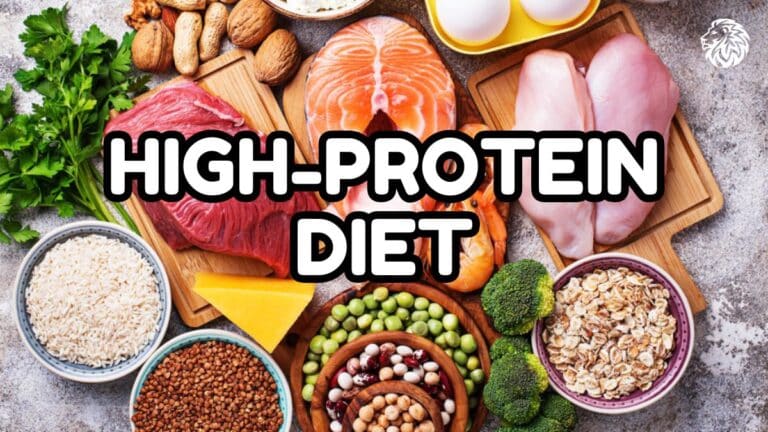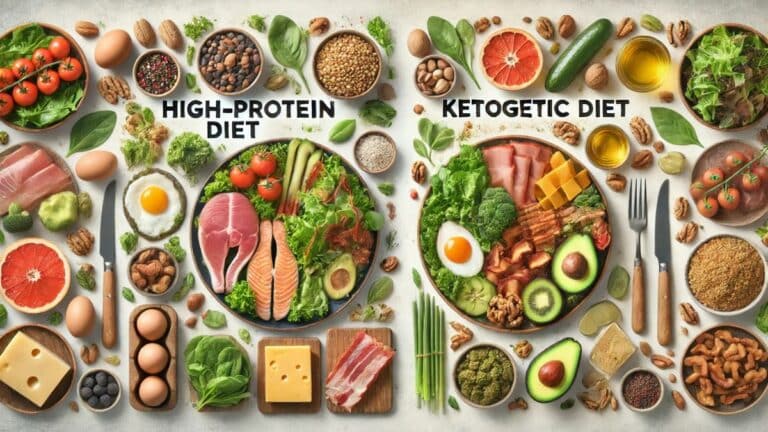A high protein diet, as the name suggests, focuses on increasing protein intake beyond typical dietary levels. This diet is characterized by its emphasis on proteins sourced from various foods such as meat, fish, dairy, legumes, and nuts. Often popular among athletes, bodybuilders, and those looking to lose weight, this diet promises various health benefits ranging from improved muscle mass to better weight management.
In this article, we delve into the world of high protein diets, aiming to provide a comprehensive understanding of their benefits and potential drawbacks. We’ll explore how altering the macronutrient balance in favor of proteins impacts the body, weigh the health benefits, and consider the possible risks associated with this diet. By examining scientific evidence and expert opinions, this article seeks to offer a balanced perspective, aiding readers in making informed dietary choices.
What is a High Protein Diet?
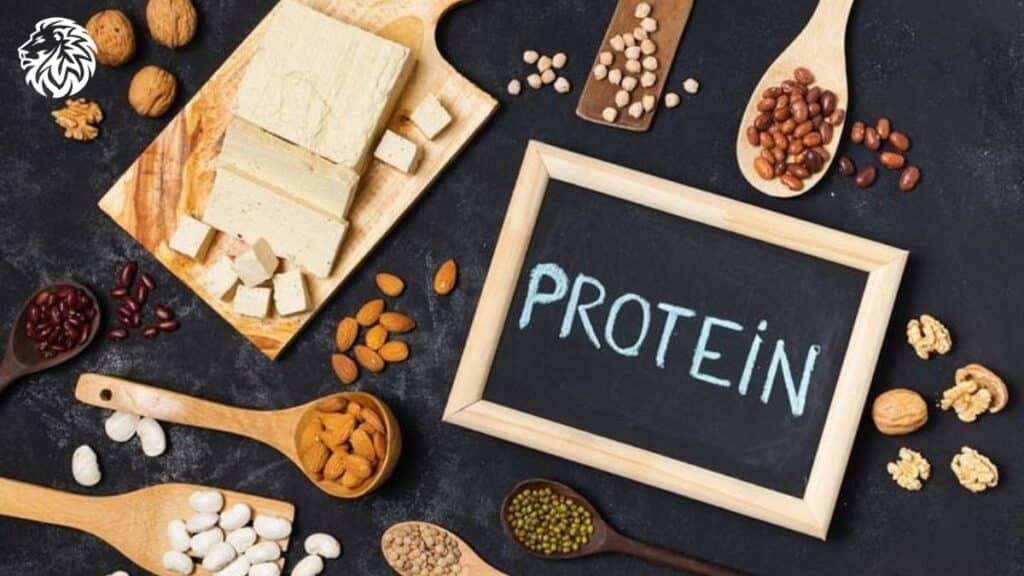
A high protein diet is a nutritional plan that emphasizes a higher intake of proteins compared to the typical amounts found in an average diet. This diet modality increases protein consumption to constitute a significant portion of one’s daily caloric intake, often at the expense of carbohydrates and sometimes fats.
Key Components:
- Increased Protein Intake: The diet involves consuming a higher proportion of calories from protein sources. This is usually above the standard dietary recommendation of 10-35% of daily calories from protein.
- Reduced Carbohydrates and Fats: To accommodate the increase in protein, the diet typically reduces the proportion of calories obtained from carbohydrates and, to a lesser extent, fats.
Typical Foods Included:
- Animal Proteins: Lean meats, poultry, fish, and seafood.
- Dairy Products: Milk, cheese, yogurt, especially Greek yogurt, and other high-protein dairy options.
- Plant-Based Proteins: Legumes (beans, lentils), tofu, tempeh, and edamame.
- Nuts and Seeds: Almonds, walnuts, flaxseeds, chia seeds, and hemp seeds.
- Protein Supplements: Whey or plant-based protein powders.
Dietary Recommendations for Protein Intake:
- The general guideline for an average adult is to consume 0.8 grams of protein per kilogram of body weight daily.
- For those following a high protein diet, the intake may range from 1.2 to 2.2 grams of protein per kilogram, depending on individual goals, such as muscle gain or weight loss.
- It’s important to consider factors like age, gender, level of physical activity, and overall health when determining the optimal amount of protein for an individual.
This section of the article lays the foundation for understanding what constitutes a high protein diet, highlighting its key components and the types of foods typically included. It also addresses recommended protein intake levels, setting the stage for discussing the pros and cons of such a dietary approach.
Pros of a High Protein Diet

Weight Management
- Satiety and Reduced Calorie Intake: Proteins play a crucial role in promoting satiety, the feeling of fullness, more than carbohydrates or fats. This can lead to a natural reduction in calorie intake, as individuals on a high protein diet may feel fuller for longer periods and thus eat less.
- Metabolism and Fat Loss: High protein intake can boost metabolism due to the higher thermic effect of food (TEF) – the energy required to digest, absorb, and metabolize nutrients. This increase in metabolic rate can enhance fat burning and aid in weight loss.
Muscle Building and Maintenance
- Muscle Growth and Repair: Proteins are the building blocks of muscle tissue. Adequate protein intake is essential for muscle synthesis and repair, especially after exercise. This is crucial for both gaining muscle mass and maintaining it, particularly during weight loss or as one ages.
- Benefits for Athletes and Physically Active Individuals: For athletes and those engaged in regular physical activity, increased protein intake supports muscle recovery, enhances performance, and reduces the risk of muscle loss.
Bone Health
- Maintaining Bone Density: Contrary to the myth that high protein intake is detrimental to bone health, studies indicate that it can actually have a positive impact. Protein plays a vital role in maintaining bone density and strength, reducing the risk of osteoporosis and fractures, especially in older adults.
Other Health Benefits
- Blood Sugar Control: A high protein diet may help stabilize blood sugar levels, which is particularly beneficial for individuals with type 2 diabetes or those at risk of developing diabetes.
- Heart Health: Some studies suggest that a high protein diet, especially when the protein is sourced from plants, may lower blood pressure and reduce risk factors for heart disease.
- Longevity: Emerging research indicates that a balanced high protein diet, particularly in middle age, might be linked with increased longevity and better overall health.
These benefits illustrate why high protein diets are popular and widely adopted for various health and fitness goals. However, it is essential to balance these benefits with potential drawbacks, which we will explore in the next section.
Cons of a High Protein Diet

Kidney Damage in At-Risk Individuals
- Risks for Pre-existing Kidney Conditions: Individuals with pre-existing kidney issues may face additional strain on their kidneys due to the increased protein load. High protein intake can exacerbate kidney problems in those already suffering from renal diseases, although it doesn’t necessarily affect kidney function in healthy individuals.
Nutrient Imbalance
- Risk of Neglecting Other Vital Nutrients: Focusing heavily on protein can lead to the neglect of other essential nutrients. High protein diets, especially those low in carbohydrates, can result in inadequate fiber, vitamins, and minerals intake, which are crucial for overall health, digestive function, and preventing chronic diseases.
High Saturated Fat Intake
- Concerns with Animal Proteins: A diet high in protein that relies heavily on animal sources (like red meat and full-fat dairy products) can be high in saturated fats. Excessive saturated fat intake is associated with increased risk of heart disease and stroke.
Potential Long-term Health Risks
- Research on Long-term Impacts: The long-term impacts of a high protein diet, particularly one that significantly restricts other food groups, are not entirely clear. Some studies suggest potential risks including heart disease, cancer, and decreased kidney function in susceptible individuals. However, these risks seem to vary greatly depending on the protein sources (plant vs. animal) and the overall dietary pattern.
In summary, while high protein diets offer several health benefits, they are not without potential drawbacks. It’s important for individuals to consider these cons, especially in the context of their personal health circumstances, and ideally consult a healthcare provider or dietitian when making significant dietary changes.
Balancing a High Protein Diet
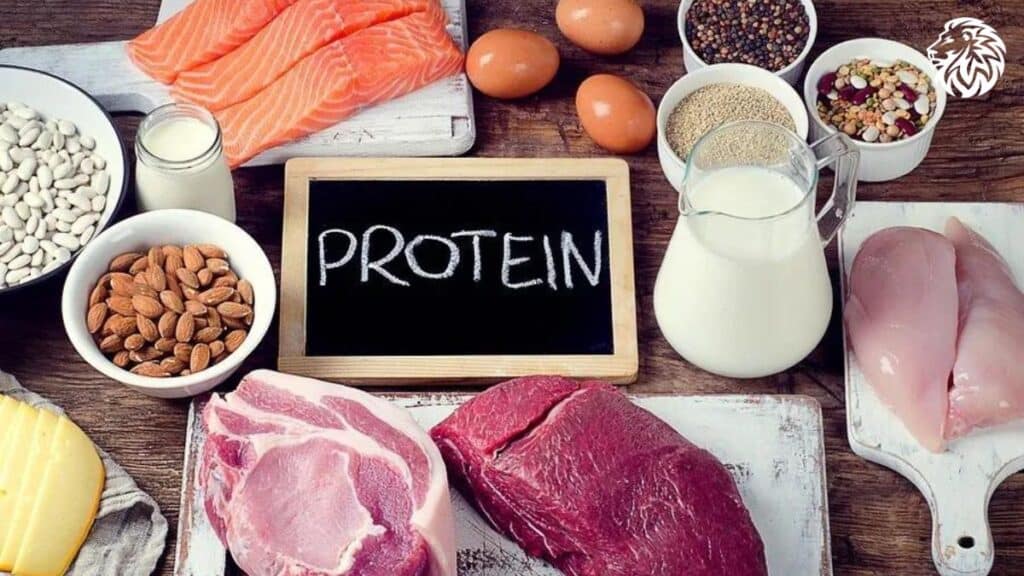
To maximize the benefits and minimize the risks of a high protein diet, it is essential to approach it in a balanced and informed way.
Tips for Incorporating Protein Healthily and Sustainably:
- Choose a Variety of Protein Sources: Include both animal and plant-based proteins to ensure a broad spectrum of nutrients. Plant-based proteins like legumes, nuts, and seeds can offer fiber and other vital nutrients alongside protein.
- Lean Towards Lean Proteins: Opt for lean meat, poultry, and fish, and consider low-fat dairy options to reduce saturated fat intake.
- Combine with Other Food Groups: Ensure a balanced diet by including fruits, vegetables, whole grains, and healthy fats to provide essential vitamins, minerals, and dietary fiber.
Importance of Variety and Moderation:
- Diverse Diet: A varied diet helps to cover the broad range of nutrients that the body needs, reducing the risk of nutrient deficiencies.
- Moderate Protein Intake: While increasing protein, it’s important to consume it in moderation and not excessively exceed recommended dietary allowances, as this can lead to potential health issues.
Consulting Healthcare Professionals:
- Personalized Dietary Advice: Individual nutritional needs can vary greatly based on factors like age, sex, health status, and activity level. Consulting with a dietitian or healthcare provider can provide personalized guidance.
- Monitoring Health Parameters: Those on a high protein diet, especially individuals with existing health conditions, should monitor their health parameters regularly, such as kidney function, cholesterol levels, and blood pressure.
By adopting these strategies, individuals can enjoy the benefits of a high protein diet while mitigating its potential risks. This balanced approach is key to maintaining overall health and achieving specific dietary goals.
Conclusion
In this article, we explored the high protein diet, highlighting its various pros and cons to provide a comprehensive view. On the positive side, a high protein diet offers benefits such as improved weight management, enhanced muscle building and maintenance, better bone health, and potential improvements in blood sugar control and heart health. However, it’s important to balance these benefits with potential downsides, including the risk of kidney damage in individuals with pre-existing kidney conditions, the possibility of nutrient imbalances, the concern of high saturated fat intake from certain protein sources, and the uncertain long-term health impacts.
The key takeaway is the importance of a balanced approach to diet. While protein is a crucial macronutrient, it should be consumed as part of a diverse diet that includes a variety of food groups, ensuring a comprehensive intake of all necessary nutrients. Moderation is essential, and so is tailoring the diet to individual health needs and lifestyle factors.
For those considering a high protein diet, it is advisable to consult healthcare professionals for personalized dietary advice. This is particularly important for individuals with pre-existing health conditions or specific nutritional needs. Ultimately, the goal should be to adopt a dietary pattern that is not only beneficial in terms of protein intake but also supports overall health and well-being in the long term.
References and Further Reading
- WebMD. (n.d.). High-Protein Diet: What It Is and How to Do It. Retrieved from https://www.webmd.com/diet/ss/slideshow-high-protein-diet
- Healthline. (n.d.). A High-Protein Diet Plan to Lose Weight and Improve Health. Retrieved from https://www.healthline.com/nutrition/high-protein-diet-plan
- Medical News Today. (n.d.). What to eat on a high-protein diet. Retrieved from https://www.medicalnewstoday.com/articles/321522
- Harvard Health Publishing. (n.d.). High-protein foods: The best protein sources to include in a healthy diet. Retrieved from https://www.health.harvard.edu/nutrition/high-protein-foods-the-best-protein-sources-to-include-in-a-healthy-diet
- Mayo Clinic. (n.d.). High-protein diets: Are they safe? Retrieved from https://www.mayoclinic.org/healthy-lifestyle/nutrition-and-healthy-eating/expert-answers/high-protein-diets/faq-20058207
